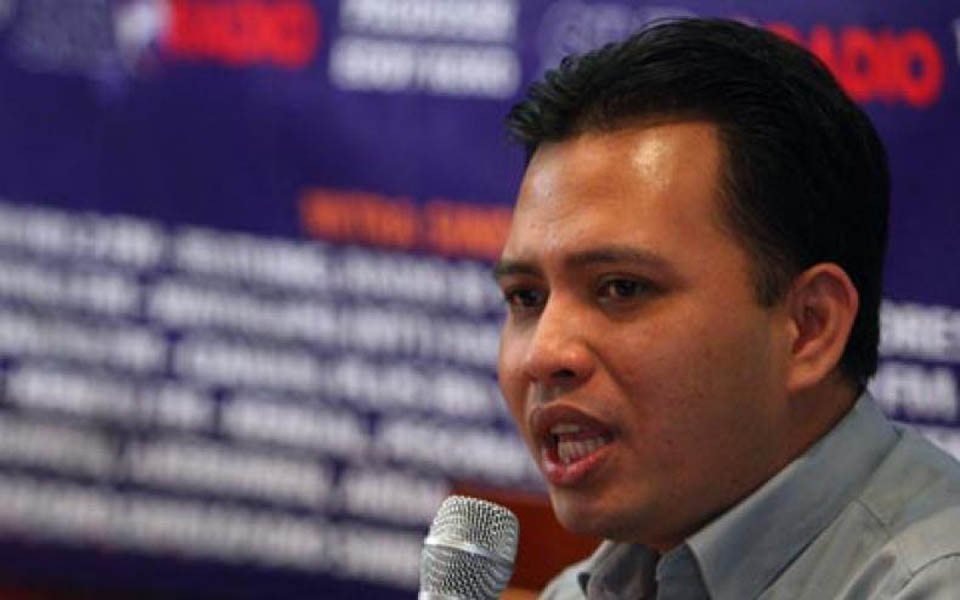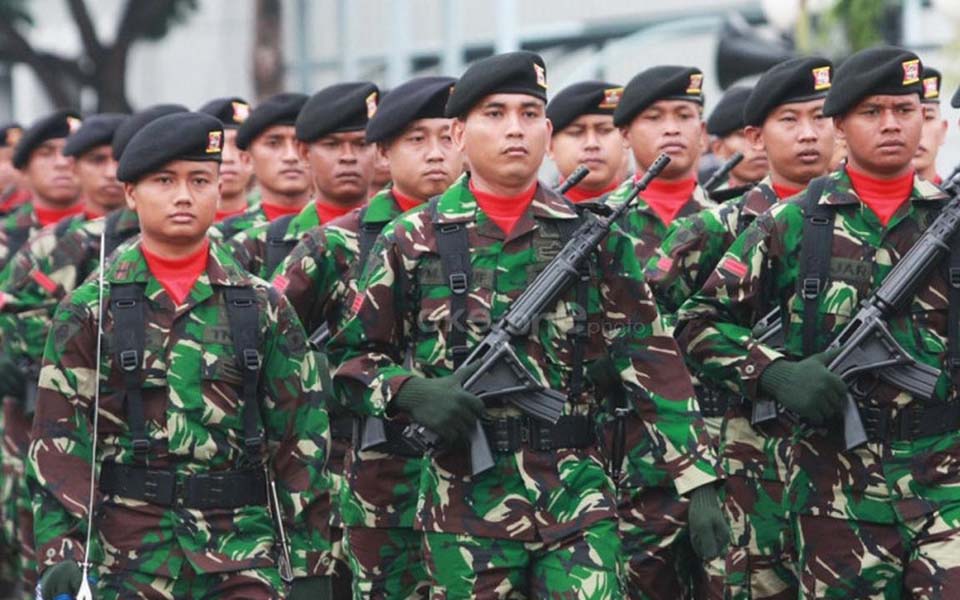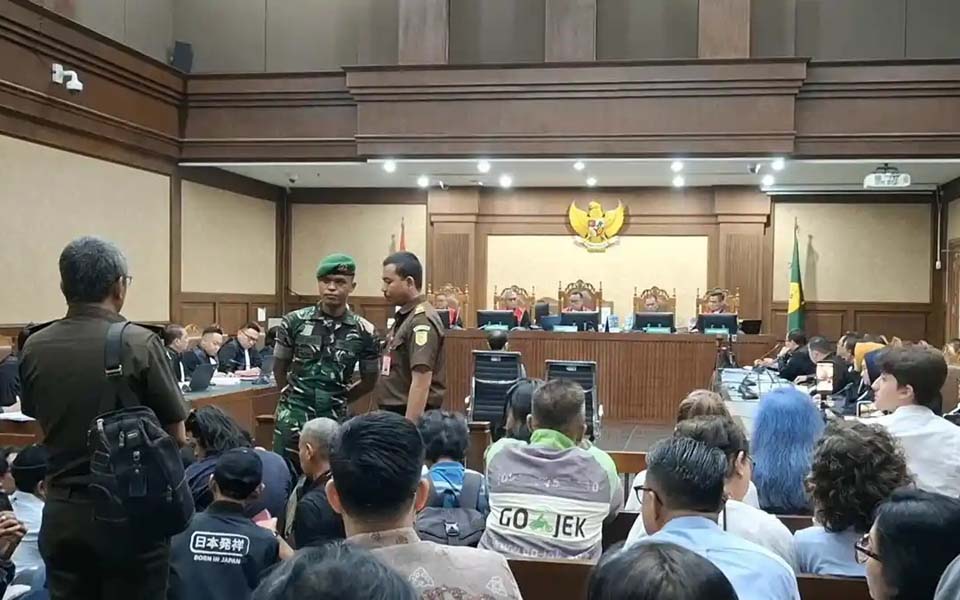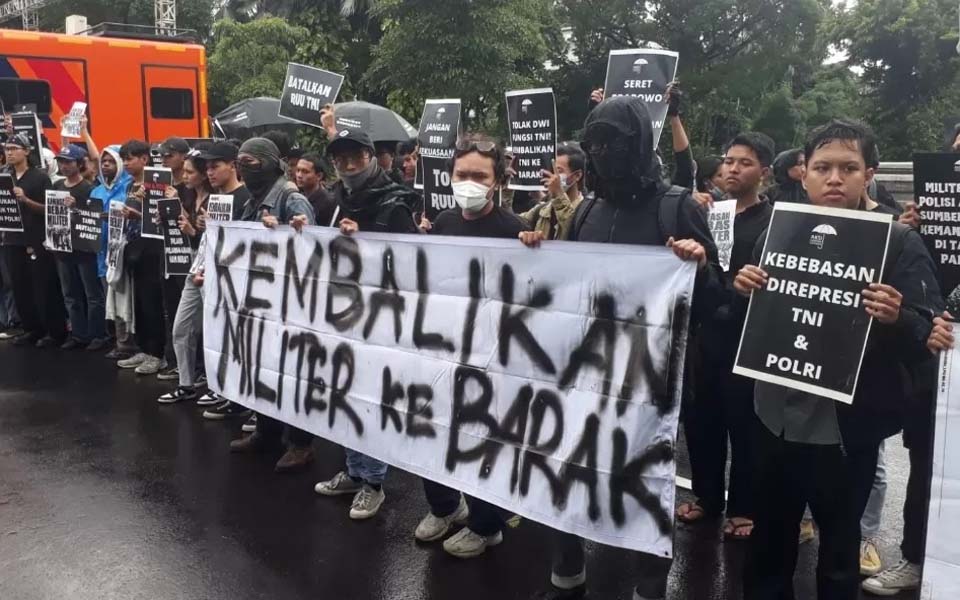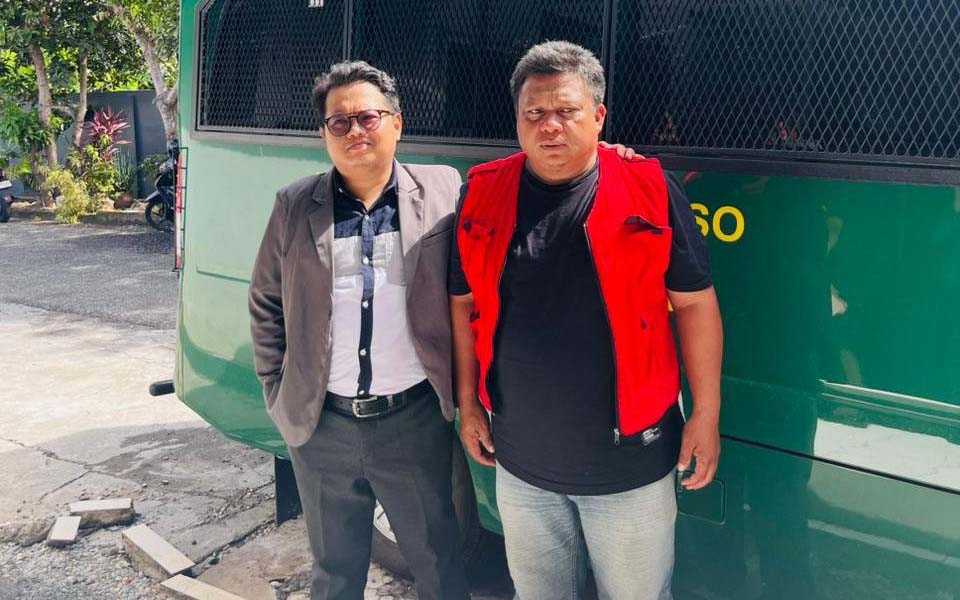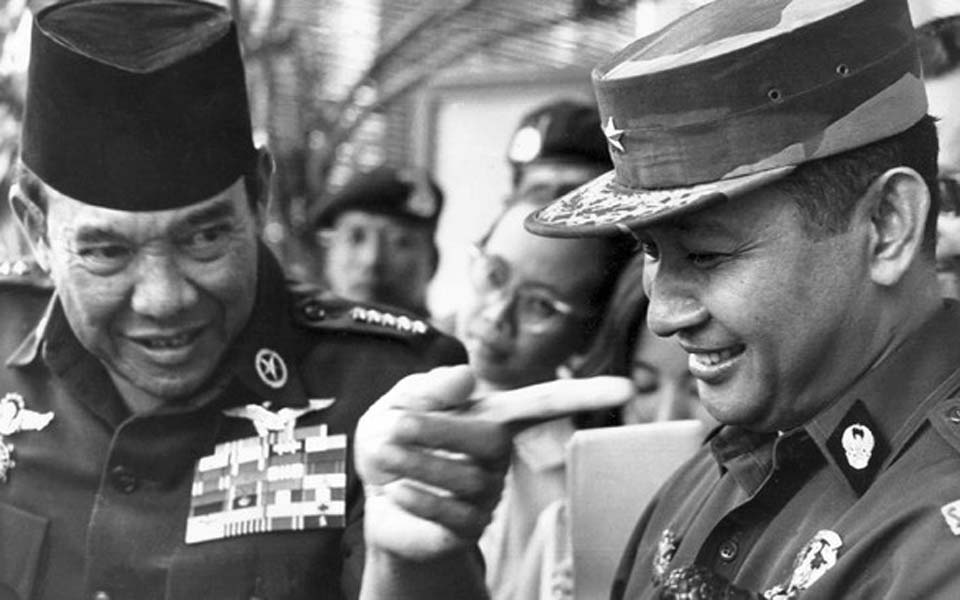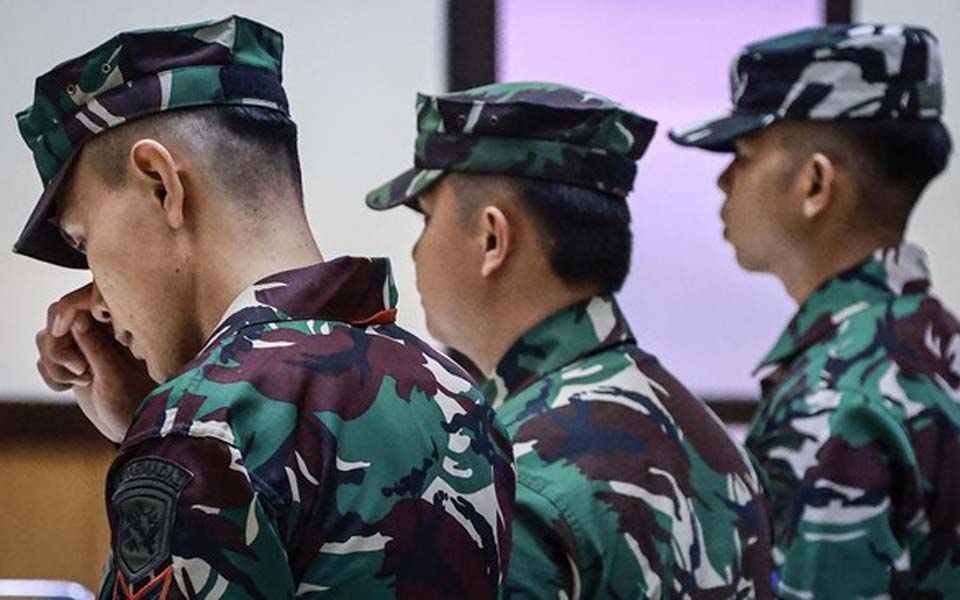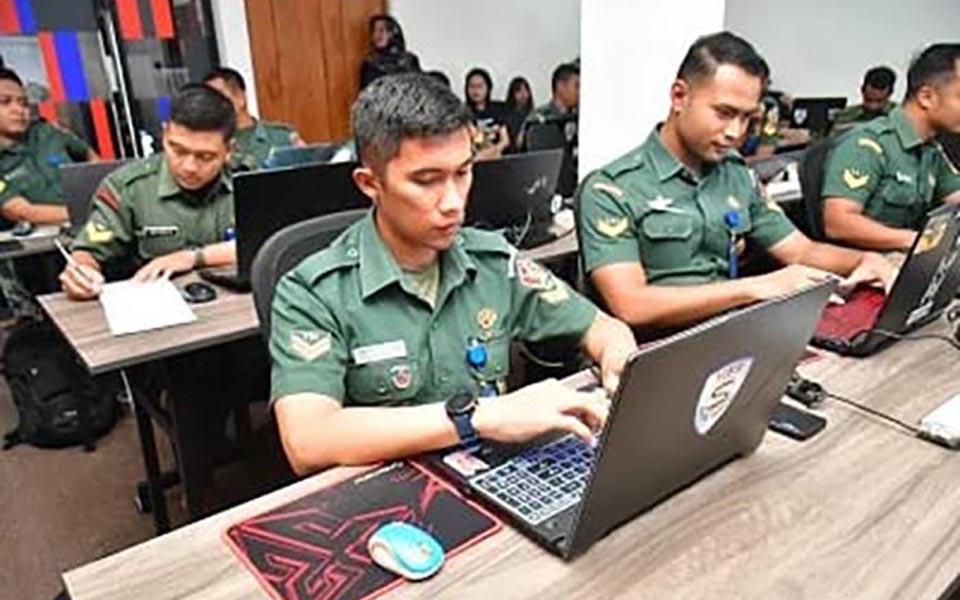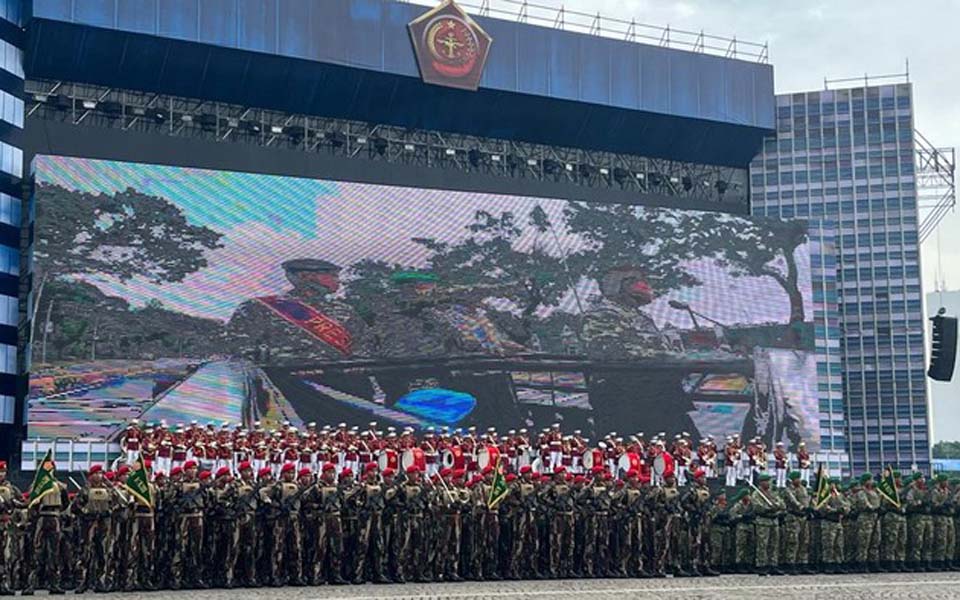Jakarta – Conflicts between the Indonesian military (TNI) and the people shows that internal reform within military as an institution is not fully complete. The security approach, like the era of Suharto’s New Order regime, is still being used by the TNI, particularly when confronted by problems.
Speaking in Jakarta on Sunday April 24, The Indonesian Institute researcher Hanta Yuda said that the conflicts that have occurred between the TNI and the people are evidence that a number of agenda items still remain in the reform of the TNI. “The indication being that the TNI still uses violent methods to overcome problems, as it did during the previous New Order era”, said Yuda.
A similar view was expressed by Wahid Institute Executive Director Ahmad Suaedy. Continued clashes between the people and the TNI demonstrates the mentality of TNI personnel inherited from the New Order, which sees the ordinary people as the enemy, not as citizens that should be safeguarded and protected. This mentality must change immediately to one in which the TNI as an institution has the central task, among other things, of safeguarding the country’s territorial boarders and external threats.
Two weeks ago a clash broke out between the TNI and local people from the village of Setrojenar in Kebumen regency, Central Java. Ten local residents were injured in the incident, five of them suffering gunshot wounds. The conflict was triggered by a land dispute, with the TNI claiming that the land in the Urutsewu area is their property and can therefore be used for heavy artillery practice. Conversely, local people claim that that they are the owners of the same land.
Kompas research and development data shows that over the last 10 years there have been a number of conflicts between the TNI and ordinary people. These conflicts are generally linked with issues of land ownership.
Last week in Jakarta, Defense Department Secretary General Errys Heryanto conceded that most conflicts between the TNI and the people are indeed linked with land ownership. He said that the Department honors the law in overcoming all problems, including land ownership disputes.
“Our country is a constitutional state. If there is a land dispute, let it be resolved by the courts until there is an inkracht van matichgedaad (final and conclusive ruling). Don’t let there be anarchic actions. Sometimes the Defense Department wins, but sometimes it also looses in court. This is quite normal”, said Heryanto.
Historical links
Yuda noted that in order that conflicts between the people and the TNI are not repeated, reform of the TNI must be continued. This process however must emphasise that the TNI needs to immediately change its paradigm to one of being professional soldiers. For professional soldiers, the use of violence against innocent civilians is a serious error.
Yuda also believes that the TNI ability to communicate in the context of a democratic state must be improved. The violence committed by the TNI during conflicts with the people indicates that its communication abilities are very minimal.
The third thing that is no less important, said Yuda is completing the transfer of the TNI’s business assets. Other conflicts involving the TNI have been closely related to businesses managed by the TNI.
Defense Minister Purnomo Yusgiantoro also concedes that land problems are not just related to land conflicts between the TNI and local residents, but are also related to the transfer of the TNI’s business activities.
Historian Bonnie Triyana added that from a historical perspective, conflicts between the TNI and civilians are rooted in the 30 September 1965 affair. “Since the case occurred, there were a great deal of assets that were taken over by the TNI, on the grounds that the [former] owners were involved in the Indonesian Communist Party”, he said.
In Central java, particularly in Semarang regency, the control of property by the TNI gave rise to problems when Indonesia entered the reform era. Conflicts in struggles over land or claims over ownership of land controlled by the TNI have also surfaced.
It is in this perspective, according to Triyana, that the problem of conflicts between the TNI and the people, particularly those related to land, must be fully resolved by the government. Meaning that a resolution has to look back prior to the 30 September Movement affair in 1965.
“In this way, we will truly know who in fact has rights over assets, such as this land”, said Triyana. (ato/ong/why/tra)
Source: Reformasi TNI Belum Tuntas – Kompas. Senin, 25 April 2011
[Translated by James Balowski.]





